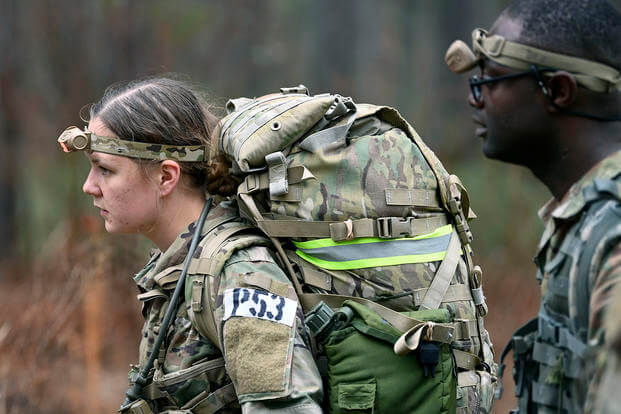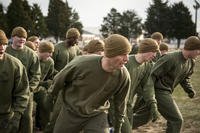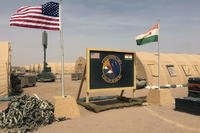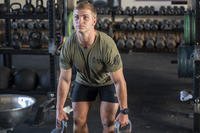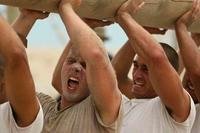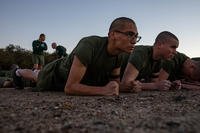People prepare for military, police, firefighter and special-ops selection programs every year, and there are failures every year because of someone not mastering certain events. As the long list below details, the reasons fall on a wide range and can include:
- Extreme hot/cold temperatures
- Being comfortable with discomfort
- Lower-extremity injuries
- Failure to master cardio challenges and techniques of runs, rucks and swims
- Lacking upper-body strength/muscle endurance
- Lacking strong core, hips and glutes for load-bearing events
- Lacking mobility and movement imbalances
- Failure to give time to building a tactical fitness foundation
- Failing specific events (swims, lifesaving, knot tying, rucking land navigation course, etc.)
- Failing academic events (medical, weapons nomenclature, navigation, dive physics/math)
- Trouble with relationships at home
- Falling for instructor-driven mind games that challenge the less confident
- Not used to being given constant negative feedback
- Failing to have the ability when the body fails the mind
The question is: How do you prepare yourself so that none of these problems bite you during selection?
Here are my top three tips:
1. Specifics
You have to get specific with your training. Depending upon the branch of service for which you are training, you should learn as much as possible about the challenging events you will be facing.
The first phase of your training should be to get to the training. This usually means passing a fitness test. For some, this can take up to a year to master all the events of a fitness test that you will take on Day 1 of selection to prove you have what it takes to continue with the program. This means working on your running pace for timed runs; swimming (if Navy, Air Force, U.S. Marine Corps); rucking at a steady but fast pace; and high-repetition calisthenics (pull-ups, push-ups, sit-ups).
Once you get your entrance exam scores to qualify for the training, now you need to focus on how to get through the training. Adding specific distances to longer runs, swims and rucks is smart for a stronger cardio base. You will see it is a running and rucking man's game in most of these special-ops selection programs -- even the services with strong water elements (Navy, AF, USMC). Adding specific weight training to simulate boat carries, log PT, equipment carry and heavy rucking is smart as well.
2. Foundation of Fitness
If you've been a long-term athlete through high school or college, you have a solid foundation to build upon to get ready for spec ops. Finding your weaknesses is what is critical with this section. Athletics requires you to specialize typically in either endurance events (run, swimming), power and sprinting events (track, football), as well as some hybrid strength, speed and endurance events, such as wrestling, soccer, lacrosse, rugby, etc.
Regardless, your spec-ops selection will expose a weakness. It might be swimming for the wrestler. It might be long-distance running for the football player. It might be upper-body strength for the cross country runner. We all have weaknesses; find them. Make them stronger if your future training selection requires it.
3. Imbalances and Injury Prevention
Exposing weaknesses that statistically lead to injury is an education in itself. Understanding what mobility is will assist with this area of concern.
There is a difference between flexibility and mobility. It is helpful to be flexible and that helps with mobility, but to move through your proper range of motion while carrying uneven weight on uneven surfaces requires specialized knowledge.
In the end, there are no tips. There is not a secret sauce. It is more about you enduring pain and discomfort as well as putting out every day. Taking the time to build a foundation is critical, but this takes years of athletics, teamwork training and finally maybe up to a year of specific training to help you master challenging events at your special-ops selection.
Stew Smith is a former Navy SEAL and fitness author certified as a Strength and Conditioning Specialist (CSCS) with the National Strength and Conditioning Association. Visit his Fitness eBook store if you're looking to start a workout program to create a healthy lifestyle. Send your fitness questions to stew@stewsmith.com.
Want to Learn More About Military Life?
Whether you're thinking of joining the military, looking for fitness and basic training tips, or keeping up with military life and benefits, Military.com has you covered. Subscribe to Military.com to have military news, updates and resources delivered directly to your inbox.
